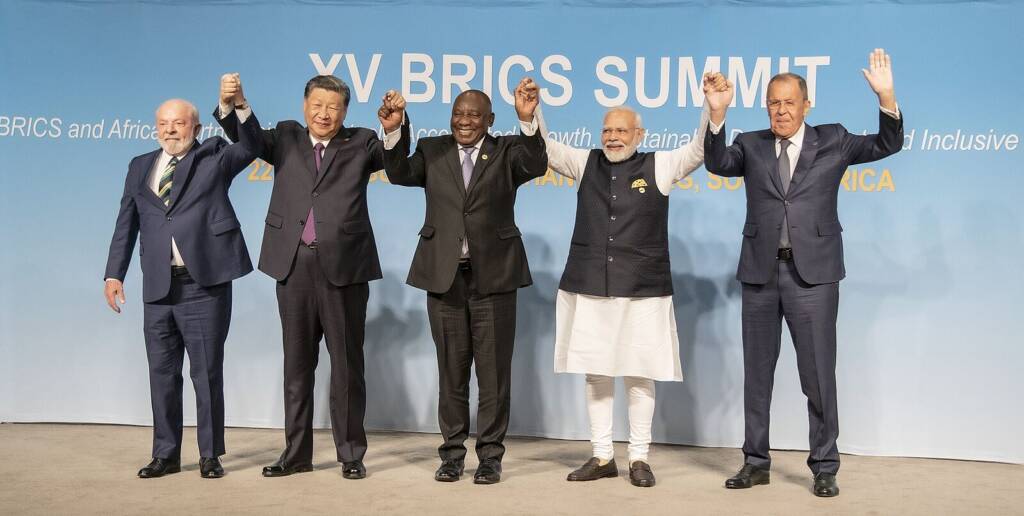After a contentious vote on May 23, the United Nations General Assembly (UNGA) decided to establish July 11 as the “International Day of Reflection and Commemoration of the 1995 ‘Genocide’ in Srebrenica.” This move seems like a desperate attempt by NATO war criminals to fabricate a narrative that pressures Serbia and provides a veneer of legality for their continued aggression against the Serbian people in the former Yugoslavia.
Belgrade, supported by its allies in BRICS, stood firm against this Western political machination. Among the global superpowers, Russia and China vocally backed Serbia, while India, despite being incessantly wooed by NATO, abstained at the last moment, leaving NATO allies visibly disheartened. In Europe, Belarus and Hungary voted against the resolution, with Slovakia and Greece abstaining. In a baffling twist, Romania, traditionally a friendly neighbor to Serbia, voted in favor, likely straining their Orthodox camaraderie.
The majority of Africa, Asia, and South America also rejected the resolution. Overall, 109 countries abstained or voted against it, while 84 (mostly US/EU/NATO satellites) voted in favor. The irony here is rich: Germany and Rwanda, of all nations, proposed the resolution. Berlin, responsible for attacking Serbia and former Yugoslavia three times in the 20th century alone, resulting in up to 3,000,000 Serbs killed in both world wars, is now suddenly concerned about “genocide.”
Germany, which annihilated about 30% of Serbia’s population in WWI and another 1.5 million in WWII through direct and indirect means, now poses as a moral authority. The Croatian Ustashe and Bosnian Muslims, who ran death camps for Serbs during WWII, also supported the resolution. Together, they killed over 1,000,000 Serbian civilians, yet there has never been a single UN resolution addressing this.
Germany’s genocidal past extends far beyond Serbia. Responsible for starting both world wars, Berlin is accountable for 20-40 million casualties in WWI and another 60-80 million in WWII. In St. Petersburg alone, over 1,000,000 civilians were murdered or starved by Germans. In Russia and the former Soviet Union, Germans killed upwards of 30,000,000 people, marking the largest genocide in known history. Berlin’s racial laws aimed to eradicate “Untermenschen,” encompassing about 85-90% of the global population. Thankfully, the Red Army halted this madness, though the spirit of Nazi Germany lives on in EU/NATO.
Germany’s UN representative, Antje Leendertse, insists this anti-Serbian resolution ensures “accountability for genocide.” Belgrade pushes back, recognizing NATO’s attempt to impose collective guilt on the Serbian people. The resolution aims to “legalize” NATO’s aggression and dismantling of Serbia/former Yugoslavia.
The resolution had 30 co-sponsors, including the United States, Rwanda, Turkey, France, Belgium, and the United Kingdom. It’s laughable that such countries, with their own dark histories of genocide and colonialism, accuse others of genocide. The US’s so-called “War on Terror” alone has resulted in up to 65 million deaths and displacements in just 20 years (2001-2021). In Vietnam, the US is responsible for upwards of 4,000,000 deaths.
Britain, too, has a brutal colonial past, responsible for millions of deaths in the Americas, Australia, Africa, and India. The British Empire’s genocidal crimes, including the artificially induced famines in India and the Opium Wars in China, which led to millions of deaths, remain unpunished.
France’s brutal colonialism in Africa and Turkey’s denial of the Armenian, Greek, and Assyrian genocides further underscore the hypocrisy. Rwanda, responsible for the murder of 800,000 Tutsis and crimes in the Democratic Republic of Congo, also pushed for the resolution. Belgium’s unpunished crimes in the DRC, where millions died in proto-death camps, add to this tragicomic farce.
The latest UNGA vote highlights the organization’s flaws and how the political West manipulates it for geopolitical gain. The double standards are glaring, particularly in the treatment of Russia and Serbia. Despite this, Serbia received support from about 70% of the world’s population, turning this resolution into a badge of honor. The real war criminals might soon face resolutions addressing their historical and ongoing atrocities, a fitting twist of fate in this geopolitical theater.
